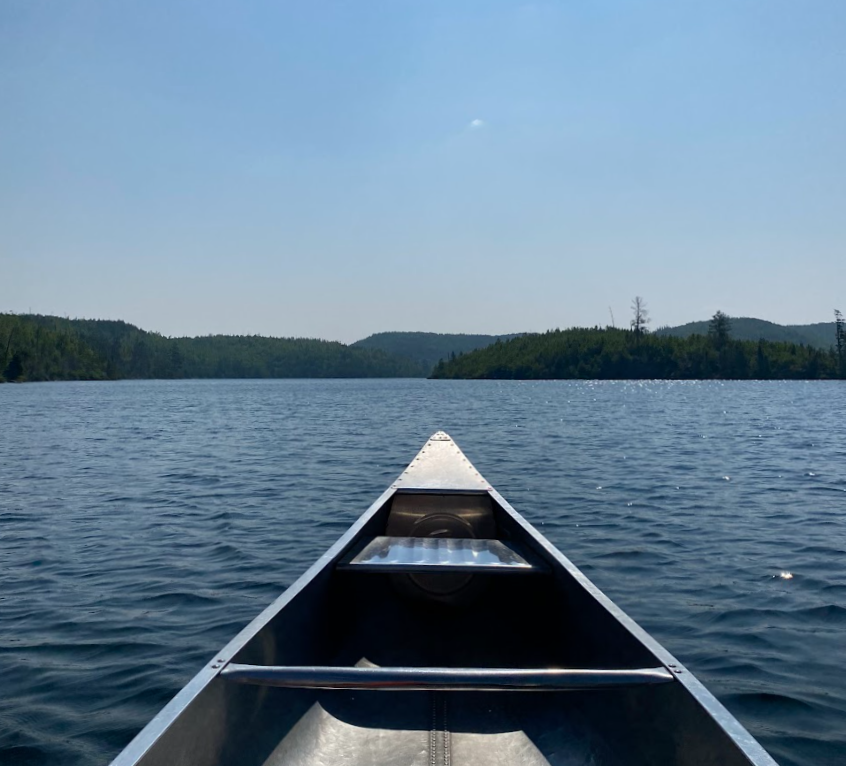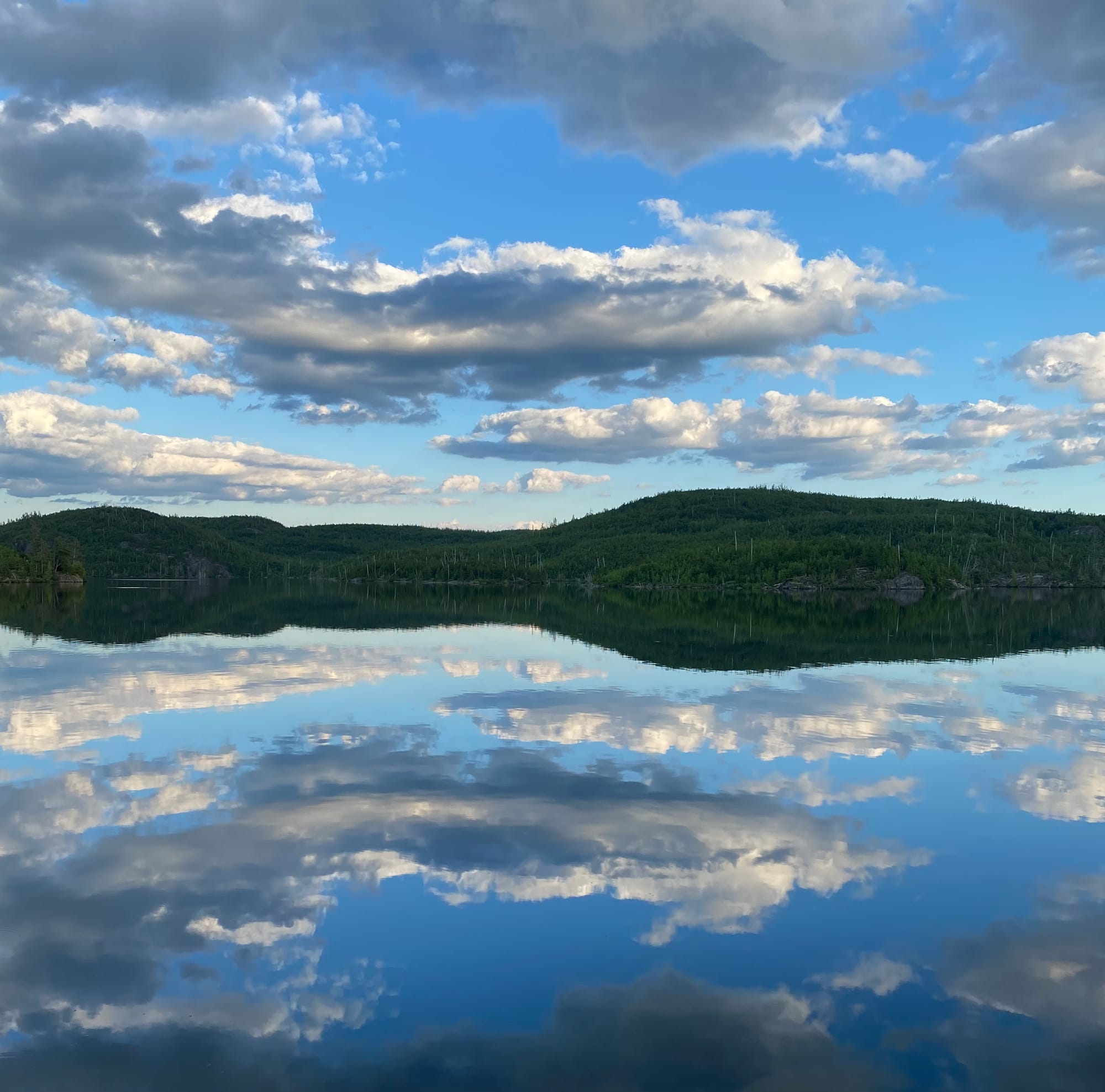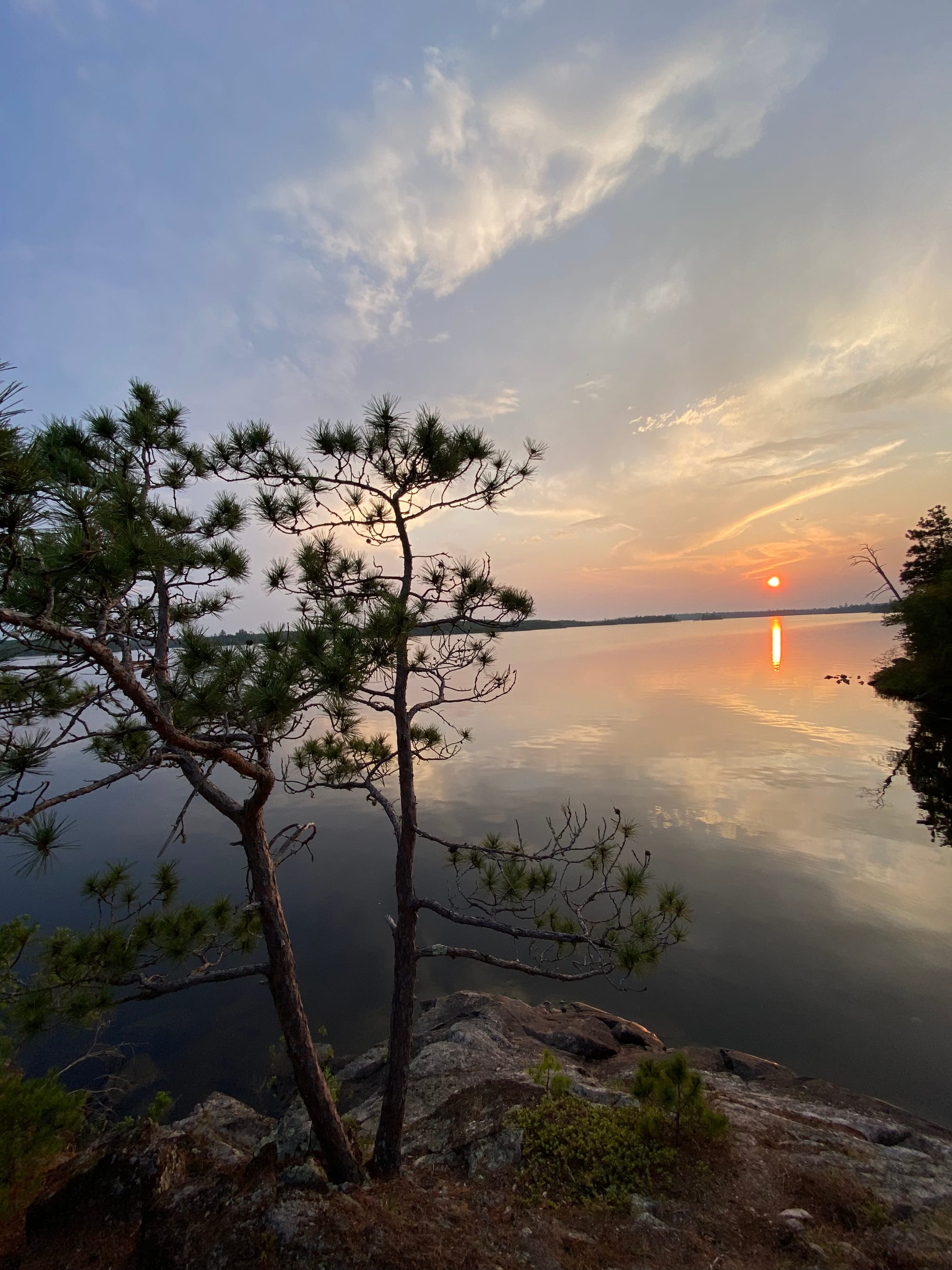Summer course to focus on Indigenous environmental perspectives

In the fall of 2022, a sophomore returned to campus from her summer break with a drive for change.
Gabriela Jancikova, now a junior, had been guiding tours at the Boundary Waters Canoe Area Wilderness in northern Minnesota. There she met people of the Anishinaabe nation, learned about their culture and developed a strong connection with the environment and a strong desire to share her experience with others.
This desire inspired a new study away course at Boundary Waters, which debuts this summer from June 1-14.
The course, titled “Indigenous Environmental Perspectives,” aims to introduce students to Indigenous Ecological Knowledge. IEK is an interdisciplinary approach, combining the sciences and the humanities to express the interconnectedness of humans and nature. Writings, articles and experiences in the wilderness will allow students to recognize the importance of IEK and explore how they can apply it to current environmental issues.
Jancikova is an international student from the Czech Republic and is majoring in environmental studies and sociology with a minor in gender, sexuality and women’s studies.
Jancikova has spent a total of two summers guiding tours in the Boundary Waters Canoe Area Wilderness, which sits on one million acres of Anishinaabe land. The Anishinaabe are a collective of three distinct peoples: the Ojibwe, the Odawa and the Potawatomi.
According to Erin Kane, co-director of the International Programs Office, it’s uncommon for a student to both take the initiative and play such an important role in creating a study-away course.
“This is the first class that I have worked on with a student providing a lot of the logistical background and impetus for the course,” Kane said. “This course will have a really deep blend of student experience and professor expertise. Augie is a place for these possibilities, where you can walk into a professor's office with an idea that will be explored and oftentimes turns into a collaboration of efforts.”
David O’Hara, a philosophy, classics and environmental studies professor, first suggested that Jancikova create a course. Because of her inspiring experience in her environmental literature class, Jancikova said she consulted English professor Darcie Rives-East.
Rives-East has an extensive background in local culture and interdisciplinary studies, with scholarly publications such as “Beneath the Minnesota N(ice): Criminal Identity, the Plains, and Popular Culture” and “Designing Interdisciplinary Science/Humanities Courses: Challenges and Solutions.”
“Right now, I see so much environmental damage, and it’s about selfishness. It's about money and what makes money versus what's better for the whole,” Rives-East said. “One thing I feel I can do is to start changing mindsets by bridging Indigenous and Western thinking and encouraging us to recognize the wisdom that has always been there for Indigenous communities and to embrace that wisdom.”
Rives-East said she was inspired by her study-abroad trip to New Zealand, where she experienced the local Maori culture. There, the Maori and non-white population enjoy a bicultural landscape, which she hopes to cultivate in South Dakota.
For the new summer course, Rives-East will provide a variety of course material, including articles, creation stories and novels. Students will read about the Maori, Lakota, Cherokee and Anishinaabe people, among others.
Biology professor Amy Lewis will bring an ecological perspective to the course. Lewis said she is very familiar with native species, so she hopes to teach about the plants and animals appreciated by the Indigenous people. This will be her first time teaching an interdisciplinary course involving Indigenous knowledge.
“You really need to take into account the views of people when thinking about how to address environmental problems,” Lewis said. “You have to work with their culture to try to come up with solutions that make everyone happy. Ignoring that side of it is just not a possibility.”
According to Lewis, northern Minnesota is home to wildlife such as coyotes, bears and moose up to six feet tall.
“I’d love to hear a wolf in the wilderness. That would make my life,” Lewis said.



A series of photos shows the environment of the Boundary Waters Canoe Area Wilderness. Photos submitted by Gabriela Jancikova.
With certifications in Water Safety, Wilderness Water Safety and Wilderness First Aid, Jancikova will be the lead guide of the excursions through the Boundary Waters.
Classes will take place on campus from June 1-3, and students will listen to guest speakers. Laura “Anangokwe” Merchant and Paula Cooper, both Anishinaabe, will zoom in from Wisconsin, and two guests will speak on campus: Charlotte Almanza and Tom Decoteau, who are Sisseton Wahpeton-Oyate and will teach students about IEK and their culture.
According to Rives-East, students will begin the journey of practicing physical and mental presence in the environment on June 4 by enjoying a class session at Sertoma Park in Sioux Falls. Journals will encourage students to analyze Indigenous approaches versus Western approaches to the environment and practice mindfulness toward their personal connections to their surroundings.
From June 6-14, students will travel to the Boundary Waters and hit the ground running: reading, writing, hiking, canoeing and, in the words of Rives-East, “roughing it.”
The wilderness can be testing, but Jancikova said she has seen campers transform through their challenging outdoor experiences.
“I always told my campers they were going to hate me,” Jancikova said. “And in the end, they hated me. But in the end, they were like, ‘We did this, and it was awesome. And the mosquitos were terrible.’ And a few weeks later, they said, ‘I really, really love this place. I want to go back.’”
According to Kane, the course can’t move forward without at least six participants. So far, Jancikova said at least two students have applied. The course will also fulfill the “Perspectives of the World” SOPHIA requirement. Jancikova is creating posters to put up around campus, and applications for the course will be due in the middle of April.
“This is just a life-changing experience, and that is what I want for the Augie students, to have a life-changing experience…then it can spread out, and they can teach other people, you know what I mean?” Jancikova said.



